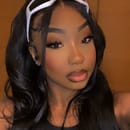Readers can be identified by their “Book Lover” mugs, their bookstore tote bags covered in an out-of-this-world design, or the color-coded post-it notes hanging on for dear life in a publication.
Joining their tribe seems as simple as picking up a random book that looks appealing from the outside. The process of choosing a new book comes down to ability, mindset, and most of all interest — no tote bag necessary.
Interest may be a perplexing problem when a book is assigned by a teacher or professor. There is no reason to fret, after this guide, you will be able to flourish through any boring book you land on.
What makes a book terrible?
At a point in time you will open up to page one, immediately get turned off by the writing style, and never make it past chapter one.
The writing style is one of the many reasons why a book may seem uninteresting. Writing style comes with secondary issues such as the book bringing on a cliché feeling or including dialogue that isn’t as realistic nor the most effective.
Furthermore, terrible books often have a plot that feels like you’ve read it before, lacking originality or a shock factor. When one of your favorite stories is retold with a twist it’s not as bad but, when books continue to repeat themselves it can be vexatious.
What can teachers and professors contribute?
Most students end up being assigned multiple books that just don’t pique their interest. Reading on their own time becomes obsolete as a result.
The root of the problem comes from teachers and professors choosing books without considering student choice.
Student choice may look like allowing audiobooks, taking students on a trip to the library without placing parameters around what they choose or offering different text selections during a lesson.
These small but impactful contributions by teachers and professors can stop students from torturing themselves reading a boring read or opting out altogether, relying on online summaries to receive a passing grade.
If I’m stuck with a boring book, how do I work through it?
Tip 1: Eliminate distractions.
We can find thousands of reasons to distract ourselves from completing what needs to be done: social media, technology, or any kind of interaction outside of the novel.
You can get rid of these distractions by finding a quiet place, silencing your phone, and/or using noise-reducing earplugs. As you disregard these distractions while reading, you might find an interest.
Tip 2: Break up reading
If the novel is not only boring but difficult to understand, analyze the length of the text and divide it into smaller sections.
A novel can be daunting to look at, as a single work of literature could be hundreds of pages. Dividing the novel section by section will allow you to have small achievements after completing and understanding each section. (Bookmarks can be used to mark your next goals.)
Tip 3: Try the audiobook version
If you just can’t get through the boring book whatsoever, the audiobook version will read it for you.
“Audible,” is an Amazon-owned company that gives you a 30-day trial after you sign up and you receive two free audiobooks of your choice. After those 30 days, you pay $14.95 a month and you can cancel anytime.
The strategies provided within this article will not only get you through a tedious novel you’ve been assigned for a class, but it will also give you new insight on how to make the best of any book you choose!


